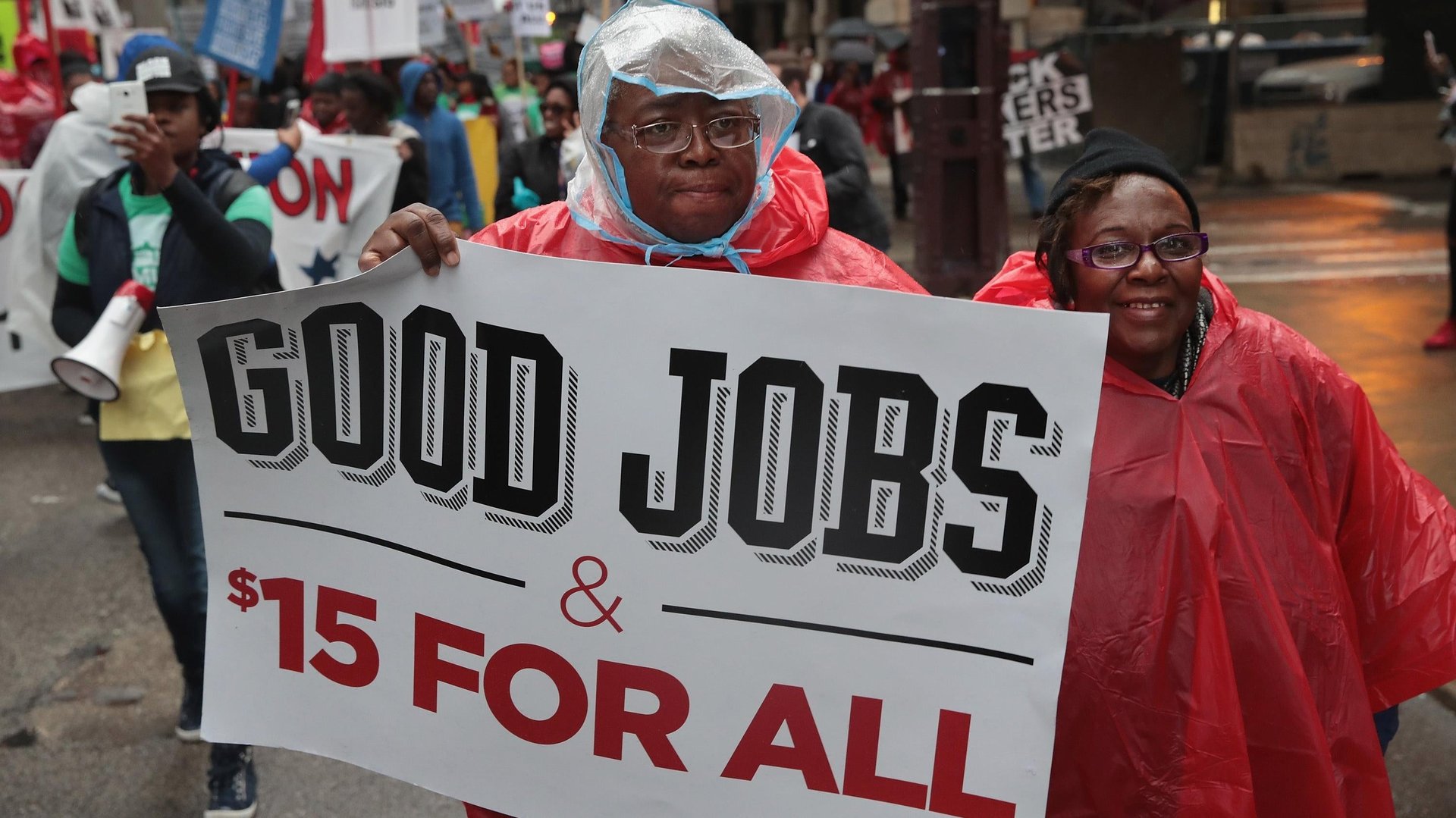Nearly two dozen US states have raised their minimum wage in 2023
Nebraska is the state that boasts the biggest hike

Days into the new year, millions more Americans are eligible for higher wages.
Suggested Reading
As of Jan. 1, 2023, 23 states and Washington DC have raised their minimum wage, according to the think tank Economic Policy Institute (EPI). The hikes will affect approximately 8.4 million workers, increasing wages by more than $5 billion.
Related Content
In addition, 27 cities and counties also increased their minimum wages.
The majority of the affected workers—over 3.2 million of them—are in California. Overall, the outsize impact is on workers above the age of 25, women, workers of color, and those living below the poverty line. More than a million single-parent households will also benefit from the raise.
Later this year, Connecticut, Nevada, Oregon, and Florida are all set to increase their minimum wages.
In 2021, president Joe Biden signed an executive order raising the minimum wage to $15 for federal workers and contractors, and he campaigned to make it the rate across the board. Congress has yet to make strides on that front.
Minimum wage, by the digits
$7.25: Federal hourly base pay
13 years: How long it’s been since Congress last raised the federal minimum wage
12.2%: How much the federal minimum wage’s purchasing power has dropped by in the last two years
56 million: Workers that would be affected by raising the minimum wage nationally to $15 per hour workers, according to an Urban Institute analysis
The best and worst state for minimum wage hikes in the new year
Michigan is raising the hourly minimum wage level by a mere 23 cents—the least, unless a pending lawsuit decides otherwise—whereas Nebraska boasts of the biggest hike at $1.50.
Mapped: Over 30 states now have higher minimum wages than the federal rate
Will raising the minimum wages drive inflation up?
Critics of minimum wage increases claim they worsen inflation, but research shows that any such impact is tiny and fleeting. That’s especially the case for federal and state-level changes that are scheduled to be implemented over time and often are indexed to some measure of price inflation. Corporate profit margins are a much bigger culprit in contributing to price rises.
Anyway, as industries recover from the pandemic, there has been a massive worker supply demand mismatch—there aren’t enough workers lining up to fill vacancies—which has resulted in many companies paying higher than the minimum wage to attract and retain workers already. So, bumping up the price floor won’t have too much of a real-world impact in many cases.
Additionally, Josh Bevins, director of research at EPI, argues that rapidly rising inflation actually signals the need for higher minimum wage. “Every year lawmakers don’t raise the minimum wage is a year that they have effectively cut the purchasing power and living standards of this country’s lowest wage workers,” he writes.
Quotable: Why raising the minimum wage won’t cause inflation
“Consider the Raise the Wage Act, which would raise the minimum wage to $15 in five steps by 2027 and would be indexed to growth in median wages thereafter. If every penny of this higher minimum wage fed directly into higher prices—that is, none of it was financed by higher productivity or lower profits—the move to $15 would create a one-time step-increase in the overall price level of less than 0.5%. Spread over five years, this implies an average boost to inflation of less than 0.1% per year, after which it would fade to near-zero. This is completely trivial. Over the past two years, inflation has run at a rate about 100 times faster than this.” -Josh Bevins, EPI research director, in a blog post dated September 2022.
Related stories
💸 Why the optimal minimum wage in the US is at least $12 an hour
